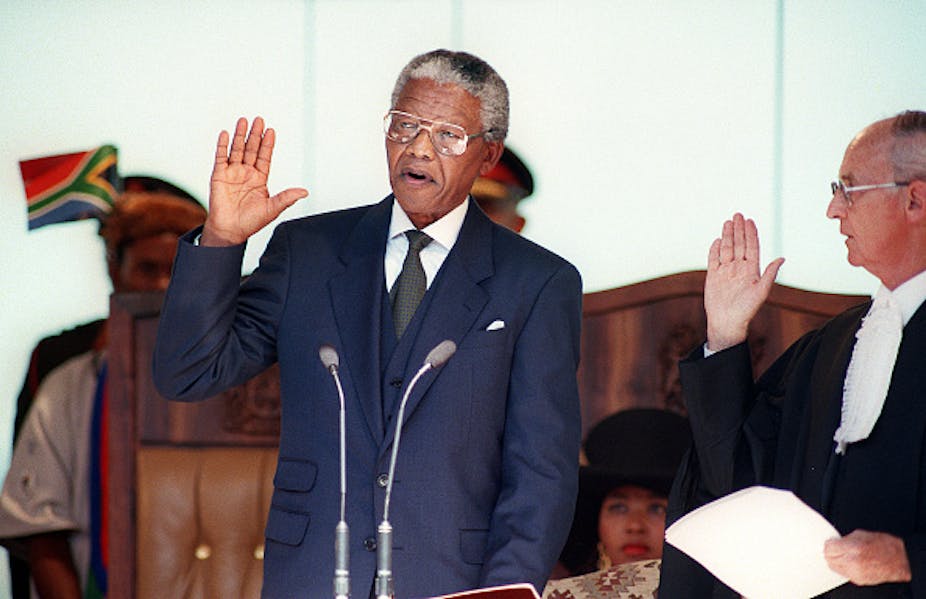When Nelson Mandela stood in front of the Union Buildings in Pretoria in May 1994 as South Africa’s first democratically elected president, my country was brimming with optimism for its post-apartheid future. I was there and relieved at the prospect of an end to bloodshed.
I had seen far too much violence and death in my five-year career as a journalist, covering the deadly political violence that characterised the dying moments of apartheid.
But was the negotiated settlement real freedom? The sceptic in me wondered. How could it be when we did not really defeat the white settler colonialists who’d made our lives a living hell, to take back the land they’d stolen from us and dictate the terms on which a liberated country would be founded?
My mind wandered back to the days when black children fighting against the inferior Bantu education system would be told:
Half a loaf is better than no bread.
That seemed to aptly describe what was unfolding before my eyes. It wasn’t quite the liberation many of us envisaged after more than 300 years of white domination. (Ours was not just a struggle against apartheid, the system of discrimination that became formalised in 1948.)
However, there was no denying that the defeat of apartheid through the ballot on 27 April 1994 was a momentous event, a turning point for the country. The victory of Nelson Mandela’s election as president carried the hopes of millions of South Africans for a better society based on justice, providing an environment for all to flourish. There was no denying the potency of his message:
Out of the experience of an extraordinary human disaster that lasted too long must be born a society of which all humanity will be proud. Our daily deeds as ordinary South Africans must produce an actual South African reality that will reinforce humanity’s belief in justice, strengthen its confidence in the nobility of the human soul and sustain all our hopes for a glorious life for all.
Three decades later
A lot of good has happened since the formal defeat of apartheid in 1994. But sadly, 30 years on, the country is in a political and economic crisis, and many are questioning the choices of the past three decades.
As part of The Conversation’s coverage of the 30th anniversary of democracy in South Africa we are bringing you a special podcast series and package of articles that examine the country’s journey. In our podcast What happened to Nelson Mandela’s South Africa?, launching on 11 April on The Conversation Weekly, I’ll be speaking to some of the country’s leading political experts.
In part 1, Liberation, transition and reconciliation, we speak to scholars Steven Friedman and Sandy Africa about the country’s transition and the early years of building a united nation under Mandela.
In part 2, Tasting the fruits of freedom, we’ll explore the policies introduced to transform the country under Thabo Mbeki, who took the baton from Mandela, and what happened during the Jacob Zuma years, in conversations with Mashupye Maserumule and Michael Sachs.
And in part 3, Dream deferred, we’ll speak to Sithembile Mbete and Richard Calland about how Mandela’s legacy is viewed by young South Africans today.
Listen to What happened to Nelson Mandela’s South Africa on The Conversation Weekly podcast. And read more coverage of the 30th anniversary of South Africa’s democratic transition from The Conversation Africa.

